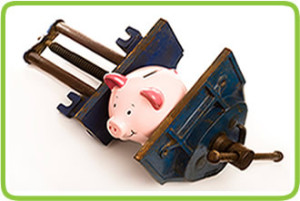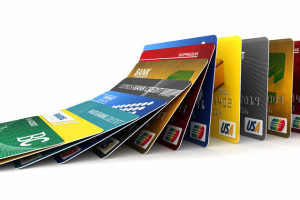February 28, 2013
 In the current economic climate it can be difficult to keep things afloat. The last 5 to 10 years have seen many businesses struggling to get by, prompting dramatic changes of business models or steps towards insolvency or recovery. If you’re worried about your business it only takes a walk down any high street to see you’re not alone. Large retailers BlockBuster, HMV and Jessops have gone into administration since Christmas, so now is the time to take action.
In the current economic climate it can be difficult to keep things afloat. The last 5 to 10 years have seen many businesses struggling to get by, prompting dramatic changes of business models or steps towards insolvency or recovery. If you’re worried about your business it only takes a walk down any high street to see you’re not alone. Large retailers BlockBuster, HMV and Jessops have gone into administration since Christmas, so now is the time to take action.
Things are ok at the moment. What steps can I take to keep my business afloat?
With the current state of the economy, even if you are making profit, things can spiral downhill very quickly if you’re not careful. You’ll need a watertight business plan, so talk to an advisor. Their help can save you a fortune later on. They will help you see your business through the eyes of potential customers, including the shopping experience and services you provide. You might be advised to make changes, and it’s important you follow these changes through.
Things are already bad. What options do I have?
Insolvency and recovery options depend largely on just how bad your business’s financial situation is. If you notice difficulties arise, it’s important to take action as soon as possible and not to wait for issues to resolve themselves over time. If this happens you can halt your insolvency or recovery programme, but if your company is trading while insolvent directors can be liable for wrongful trading. You don’t want to find yourself facing legal action or being personally responsible for debts, so take action now. A financial advisor will guide you through your options, which may include refinance, administration and liquidation.
Liquidation is the winding up of a business so it ceases to trade. Creditors’ Voluntary Liquidation is the most common form in the UK, involving closing the business and selling its assets to pay debts.
Pre-pack administration is when the company is sold to a third party (the administer). This is a good option if you are under a lot of pressure to react quickly, but it does mean the administer can sell the company without the agreement of creditors – unlike in liquidation cases. It can, however, be sold to the current directors to create a phoenix company; essentially your old business with a new name.
If a bank (or other creditor) decides the directors aren’t suitable, they may appoint an administrative receiver to take over running the company. This person can sell off assets and recover money as they see fit, and will primarily serve their own interests. This is called receivership, and means the conduct of directors will be investigated.
Voluntary arrangements and voluntary liquidation are a much better option than court ordered compulsory options, but your business doesn’t have to get to those stages. Consider debt management, lending money or restructuring before your cash flow problems get out of hand. Business recovery experts will be able to help you, whatever your situation.
Tags:
Business,
Debts,
economy,
financial planning,
Financial Situation,
money
February 27, 2013
 Although your bad credit score can sometimes feel like a rain cloud looming over your chances for financial freedom, there are opportunities for the sun to shine through. It’s not all bad news when it comes to your poor credit score, because despite common misconceptions, you can receive a credit card, apply for student loans, and access emergency cash. And the best part of all is that it is always possible to repair your credit score.
Although your bad credit score can sometimes feel like a rain cloud looming over your chances for financial freedom, there are opportunities for the sun to shine through. It’s not all bad news when it comes to your poor credit score, because despite common misconceptions, you can receive a credit card, apply for student loans, and access emergency cash. And the best part of all is that it is always possible to repair your credit score.
Credit Card Options
Applying for a credit card is a great way to build your credit, but unfortunately your bad credit score can limit your credit card options. Don’t be discouraged though, because there are multiple ways in which you can still receive a credit card despite your low score.
People with bad credit often take the secured credit card route. A secured credit card functions much like an unsecured credit, but you pay a security deposit and a monthly fee. You also will most likely experience a lower credit line, which reflects the value of your cash deposit. Only consider this option though if you can pay your monthly dues, otherwise you will very quickly rack up late charges and high interest.
You can also apply for a credit card with a cosigner who has a good credit score. It’s important however that both you and your cosigner understand that if you fall behind on payments, your delinquency will affect not only your credit score, but also your cosigner’s credit score. You won’t want to jeopardize your cosigner’s score on top of your own, so refrain from involving a cosigner if you are unable to make timely payments.
Students Loan Opportunities
Fortunately, you’re not out of luck when it comes to financial aid for higher education. Although you may not qualify for all loans, you do have options.
One option you can turn to is a private student loan through lenders such as Chase, Citibank, and Wells Fargo. In the same way that you can apply for a credit card with a cosigner, most of these lending houses will require a cosigner with an upstanding credit score. In this case, the cosigner agrees to pay for the loan if you fail to make payments. These loans are often associated with higher interest rates though, so only sign on if you understand all of the terms and conditions.
You could also apply for scholarships and grants to receive funds for school. Institutions will award you scholarships based on your athletic or academic performance, while they link grants to your financial situation and need. Scholarships and grants are more attractive options because they are monetary gifts, which you do not repay.
Emergency Loans Access
While your bad credit score will make it difficult to take out traditional loans from banks and lenders, there are bad credit loans, which can help cover life’s unexpected emergencies. Payday Loan lenders usually do not review your credit report, but they do generally expect you to repay the loan by the following payday. Failing to meet payment deadlines will result in expensive fees and high interest, so it is best to only take out this loan if it’s a one time situation, if you understand the terms of the loan, and if you are able to repay the loan.
You Can Always Improve Your Score
It’s never too late to start building your score, and because it can take years to recover from financial delinquency, it’s best to start fixing it now. Begin by repaying any debt that you owe. This may mean contacting your creditors to establish repayment plans, but be sure to demonstrate your willingness to pay back the money.
While you will want to continue using your credit cards to build your credit, use them sparingly and only for small purchases that you are capable of paying on time. In addition to paying your credit card bills on time, you should strive to pay your rent, utilities, and any other bills on or before their due dates as well.
Make a conscious effort to cut back on spending, save money, and consider consulting financial advice if your finances seem unmanageable. Bad credit is not a permanent situation, so take the time to improve it so that you can experience a brighter financial future.
Chloe Mulliner is a writer and editor for several consumer websites related to credit and personal loan options.
Tags:
credit,
Credit Score,
economy,
money,
personal finance,
Repair
February 23, 2013
 There’s a lot of buzz about the implications of bad credit and the importance of maintaining good credit, but many of us are still unclear about certain aspects of our credit reports. How long does a bad payment last on your record? Can you receive a loan with no credit history? And what about your job, is it really legal for an employer to snoop at your credit report? The following top three things you should understand about your credit report will answer all of those pressing questions and more.
There’s a lot of buzz about the implications of bad credit and the importance of maintaining good credit, but many of us are still unclear about certain aspects of our credit reports. How long does a bad payment last on your record? Can you receive a loan with no credit history? And what about your job, is it really legal for an employer to snoop at your credit report? The following top three things you should understand about your credit report will answer all of those pressing questions and more.
1. Bad Credit Will Hang Around
Your credit history from today and two years back accounts for around 70% of your credit report, while the other 30% dates back seven to ten years. Good credit can hang around for around ten years while your last payment delinquency may show up for seven years. This is important to keep in mind, because one bad payment can haunt you for years, despite the fact that you’ve maintained a clean record ever since.
With that being said, your credit score can change on a day-to-day basis for various reasons such as if you apply for a new credit card, declare bankruptcy, or miss a payment. Generally though, your score will not change more than 30 points in one quarter. In addition, your credit score may vary depending on which of the credit bureaus reports your score, as each has their own scoring methods.
2. You Can Still Receive Loans With Bad or No Credit
If you have poor or no credit, there are options available that may prevent banks and lenders from turning down your loan request. eCredable.com, for example, offers you an All My Payments (AMP) credit rating, which takes into account your monthly payment obligations such as rent, utility, and cell phone bills to help establish your creditworthiness. These kinds of payments generally do not show up on the traditional credit bureau reports, but they can provide proof of your payment history. Some, but not all lenders will accept this form of nontraditional credit worthiness.
In the case of an emergency, you can apply for loans for people with bad credit. Typically, these bad credit lenders do not ask to see your credit report, so it usually does not matter if you have bad or no credit. But because payday lenders are taking a risk by supplying you with a loan, they do charge high interest rates and fees. Only apply for a cash advance if it is an emergency situation and if you are capable of paying back the loan in short order. Also, read and understand all of the loan terms before applying.
3. Your Future Employer May Judge Your Credit Score
While it’s not uncommon for credit card companies and landlords to check out your credit report, now potential employers are gathering around to sneak a peek too. And yes, it is perfectly legal for them to do so. A 2010 Society for Human Resource Management survey revealed that 60 percent of employers conduct credit checks on prospective job candidates.
These employers are using your credit score as a judgement of your character and financial reputation. Employers, especially those in financial fields, want to determine your level of monetary responsibility before allowing you to handle company finances.
Even though a bad payment can stick around on your credit record for a while, this should not discourage you from taking strides to improve it. And regardless of whether you can still borrow money from a lender with poor credit, your future employer may want to see your score, so you should always build your score to the best possible number to help prevent any possible obstacles. If you’re still experiencing uncertainty when it comes your credit score, do not hesitate to contact a financial advisor or credit counseling organization.
Tags:
credit,
Credit Score,
Debts,
economy,
financial planning,
loans
February 22, 2013
 The major economic boom that Australia surged into is about to start faltering, as investments into resources are about to pass their peaks. The Reserve Bank warns of the predicted fall in companies investing; resulting in the slowing of the massive growth that has been witnessed, and a slow rise in unemployment ahead of 2014.
The major economic boom that Australia surged into is about to start faltering, as investments into resources are about to pass their peaks. The Reserve Bank warns of the predicted fall in companies investing; resulting in the slowing of the massive growth that has been witnessed, and a slow rise in unemployment ahead of 2014.
Investment administration services are predicted to be a necessary service as the economy’s change of pace can be hard to detect or understand, as the investing population runs at a risk of liquidating dollars.
This faltering in the economy is predicted to come about as the Reserve Bank of Australia looks at the investments in the resource industry, and how these numbers are falling, and the worry is that there is not enough demand in the economy to replace it. Investment administration services understand companies that investments will have to change their pace, and that their investment administration will have to take different shape as the economy takes natural digressions.
Australian Treasurer Wayne Swan concurred with the Reserve Bank’s findings, saying that the outlook was “challenging”. Investment administration services should be utilized to gain better understandings on the more grim economy outlook that Australia has witnessed in a number of years, since the World Financial Crisis. Another issue, besides that loss of investments if the investment administration is not understood properly, has “made business cautious, particularly in terms of hiring labour,” Swan said.
This shifting economy means complete readjusting of investments, and looking at new investment strategies, which can be devised by investment administration services. It is important that in Australia we understand the changes that the economy takes in order to avoid the issues that plague socialist European nations.
Although as a nation Australia faces the possibility of a slipping national economy, it is after such an unpredicted high and strong dollar. Australia continues to be in a high percentile of countries repairing themselves after the financial crash. Now is a time, more than ever, that investment administration is taken seriously so as to not run the risk of turning over losses, and therefore being able to use a time like this advantageously.
Tags:
Australian Economy,
Cash Flow,
economy,
investments,
money,
planning,
tax
February 21, 2013
 The unfortunate truth is that many people will find themselves short on cash at some point this year. Even the most financially responsible individuals may run into hard times, and they may need access to a quick source of money for a few days. For example, when your child is sick or you are in a car accident, you may be faced with lost income as well as various expenses. This and many other events can and do happen, and they can be costly. Some people may have enough money saved in their savings account to get by, but if you don’t, what should you do to get over this rough patch?
The unfortunate truth is that many people will find themselves short on cash at some point this year. Even the most financially responsible individuals may run into hard times, and they may need access to a quick source of money for a few days. For example, when your child is sick or you are in a car accident, you may be faced with lost income as well as various expenses. This and many other events can and do happen, and they can be costly. Some people may have enough money saved in their savings account to get by, but if you don’t, what should you do to get over this rough patch?
Credit Cards
Credit cards may be the source of quick money that many people initially will consider. You may have one or more credit cards in your wallet right now that you can pull out and use at a moment’s notice. However, keep in mind that a cash advance on these cards can be very expensive, and often, there is a higher interest rate and an extra fee associated with this. Furthermore, if your cards are maxed out, this is not an option for you. As a final note, consider how long it may take you to pay your credit card balance off. Any new charges to your account today will increase your minimum monthly payment until the balance is paid in full, and this can affect your budget for months to come.
Paying Bills Late
If you don’t have money available to pay your bills, it may have crossed your mind to simply not pay those bills. Eventually, you will get caught up, and you can pay your bills as funds become available. However, keep in mind that there are costs associated with simply not paying the money that you owe to your creditors. Many creditors will add a sizable late fee to your account balance, and they will continue to add onto the total you owe. For example, if you owe $100 to a creditor today, that creditor may charge a $30 late fee for not paying your account. Next month, you may owe $200 plus the $30 late fee. This can be a costly route to take, and it can result in you digging yourself into a financial hole that can be difficult to get out of. Furthermore, your credit rating may be ruined if you fail to make your payments on time, and this can affect your ability to obtain affordable financing for many months or years.
Short-Term Loan
A final option to consider is to apply for a short-term loan. Canada cash loans from www.CashLoans.ca are one of these options. These loans do have typically higher interest rates than long-term loans, but they have a short term and can provide you with access to the cash you need in a short period of time. You will not have to contend with late fees, increases to minimum monthly payments or how much credit you have available on your credit cards.
Each financial situation is unique, so it is important to consider how each of these options may be applied to your life. Ultimately, many individuals will have access to one or more of these options, and you may keep these points in mind as you make a decision that is best for you.
Tags:
Cash Flow,
debt,
economy,
expenses,
finance,
money,
planning
 In the current economic climate it can be difficult to keep things afloat. The last 5 to 10 years have seen many businesses struggling to get by, prompting dramatic changes of business models or steps towards insolvency or recovery. If you’re worried about your business it only takes a walk down any high street to see you’re not alone. Large retailers BlockBuster, HMV and Jessops have gone into administration since Christmas, so now is the time to take action.
In the current economic climate it can be difficult to keep things afloat. The last 5 to 10 years have seen many businesses struggling to get by, prompting dramatic changes of business models or steps towards insolvency or recovery. If you’re worried about your business it only takes a walk down any high street to see you’re not alone. Large retailers BlockBuster, HMV and Jessops have gone into administration since Christmas, so now is the time to take action.




Recent Comments